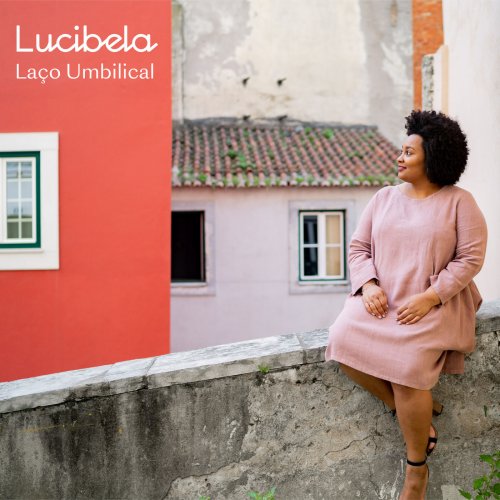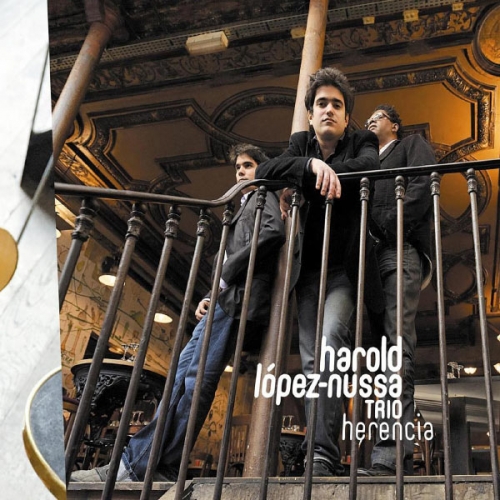Lucibela - Laço Umbilical (Bonus Version) (2019)

Artist: Lucibela
Title: Laço Umbilical (Bonus Version)
Year Of Release: 2019
Label: Lusafrica
Genre: World, Brazilian, Jazz
Quality: MP3 320 kbps; FLAC (tracks)
Total Time: 53:50 min
Total Size: 129; 341 MB
WebSite: Album Preview
"Laço Umbilical "(Bonus Version)Title: Laço Umbilical (Bonus Version)
Year Of Release: 2019
Label: Lusafrica
Genre: World, Brazilian, Jazz
Quality: MP3 320 kbps; FLAC (tracks)
Total Time: 53:50 min
Total Size: 129; 341 MB
WebSite: Album Preview
14 juin 2019
Lucibela's Laço Umbilical album isnow re-issued with a new title"Ti Jon Poca" which had a great success at every concert.
Two tracks of the album have been reworked with some great additional featurings "Dona Ana" with the renowned singer Bonga and "Sai Fora" (previously known as“Mal Amadu”) with new raï inspirations added by the talented Sofiane Saidi.
Biography
Lucibela is a smile; a fresh breeze ruffling the bougainvillea blooms and wave tops. The young Cabo-Verdean was born in 1986 on São Nicolau, one of the Barlavento islands – the ‘windward’ isles to the north of the Sahel archipelago. Now she has made her first album, Laço umbilical, the cord that links the singer to her land. Over its thirteen tracks, Lucibela-the-voice-of-gold explores the issues involved: being a woman and a Cabo-Verdean, living far away and loving with sensuality and grace. The secret of Lucibela’s extraordinary vocal technique lies in her ability to explore the deep register of Brazil’s great sambistas while adding a thrilling vibrato.
Written by old masters such as Manuel de Novas and the generation that followed (Jorge Humberto, Betu and so on), the songs from the traditional repertoire that Lucibela champions span decades. Lucibela – like Elida Almeida who wrote two of the tracks – belongs to a new, uninhibited generation. The two young women take guitars, cavaquinho, saxophone, accordion and violin – all the musical cornucopia of the islands – and blend them in the civilizational cocktail shaker of tablet computers and television. Lucibela projects an intriguing intensity, moving from pure emotion to audacious gambles to firm opposition. Laço Umbilical’s arranger and musical director is the ingenious acrobat Toy Vieira, Cesaria Evora’s associate, who has also worked with Lura.
Lucibela grew up on São Vicente, whose port Mindelo is famous for a number of reasons. The city was home to one of the first high schools in the Portuguese colonies. Amilcar Cabral studied there before he became the father of independence in 1975. Lucibela’s mother was a widow with a state pension. Determined that her children would receive a good education, she moved to Mindelo and enrolled them at the school.
Lucibela loves to sing and Mindelo is also a musical paradise thanks to the Brazilian, Cuban, British and Portuguese sailors who sowed the seeds of morna and coladera there. Those Creole fusion genres were introduced to the world by one of their most illustrious performers: Cesaria Evora, a native of Mindelo.
Beneath Lucibela’s sweet, smiling exterior is a woman who has also experienced life’s hardships. That inevitable involvement of fate in art undoubtedly gifted the girl with her extremely feminine intuition. When she was in the last year of high school, her mother died and left the family destitute. To follow the dreams of her lost mother, Lucibela had to find a job that paid… and the teenager had a talent: singing. She adored bossa nova, of course, but also listened to Brazilian pop on the radio. So, she formed a group with friends who, like her, preferred jazz and rock to traditional genres.
Lucibela shrewdly realized that she could earn a living by singing in the hotels and bars of Mindelo, frequented by tourists who wanted to hear local songs. So, she began to cover Cesaria Evora’s repertoire, beginning with Nutridinha, a joyous, beautifully crafted song about bad girls.
Lucibela joined the Mindel Som band and left for the island of Sal, where she re-energized the role of hotel singer, especially at the Morabeza. Then she was offered a contract to sing on the sand-dune island of Boa Vista. She remembers working hard and learning a lot about vocal technique, the repertoire and the secrets of winning over audiences. In 2012, she went to live in her country’s capital, Praia, where she encountered Kaku Alves, Cesaria Evora’s guitarist for nearly 15 years. Lucibela sang at the Quintal da Musica and took part in the television talent contests Talento Estrela and Estrela Pop, reaching the final.
Keen to spend more time with her family and daughter, she recently moved to Lisbon. Lucibela explains that to go on learning and not lose her touch, and because singing is a sharing, candid, face-to-face experience, she still performs in the squares and streets. When she mentions that, a blissful smile gently lights up her face.
Tracklist:
01. Lucibela - Chica Di Nha Maninha (4:01)
02. Lucibela - Sodadi Casa (3:52)
03. Lucibela; Sofiane Saidi - Sai Fora (3:32)
04. Lucibela; Bonga - Dona Ana (4:16)
05. Lucibela - Stapora do Diabo (3:40)
06. Lucibela - Porto Novo Vila Crioula (4:11)
07. Lucibela - Laço Umbilical (4:10)
08. Lucibela - Profilaxia (3:28)
09. Lucibela - Mi e Dode Na Bô Cabo Verde (3:49)
10. Lucibela - Arku da Bedja (3:41)
11. Lucibela - Novo Olhar (4:08)
12. Lucibela - Sant Antôn (4:02)
13. Lucibela - Violeiro (3:24)
14. Lucibela - Ti Jon Poca (3:37)
![Mehmet Ali Sanlikol - The Electric Oud Man Speaks and You Listen... (2026) [Hi-Res] Mehmet Ali Sanlikol - The Electric Oud Man Speaks and You Listen... (2026) [Hi-Res]](https://img.israbox.com/img/2026-02/28/0areq907i6p8nj96306jai1a0.jpg)

![El Calefón - Salir Del Agujero (2026) [Hi-Res] El Calefón - Salir Del Agujero (2026) [Hi-Res]](https://img.israbox.com/img/2026-02/26/sm3fq4x280rjvn4eh85ksne6j.jpg)
![Jeremy Pelt - Our Community Will Not Be Erased (2026) [Hi-Res] Jeremy Pelt - Our Community Will Not Be Erased (2026) [Hi-Res]](https://www.dibpic.com/uploads/posts/2026-02/1771945030_folder.jpg)



![Fabiano do Nascimento - Vila (2026) [Hi-Res] Fabiano do Nascimento - Vila (2026) [Hi-Res]](https://img.israbox.com/img/2026-02/26/o4t38f6qf24pvc3bqzanbhsz3.jpg)
